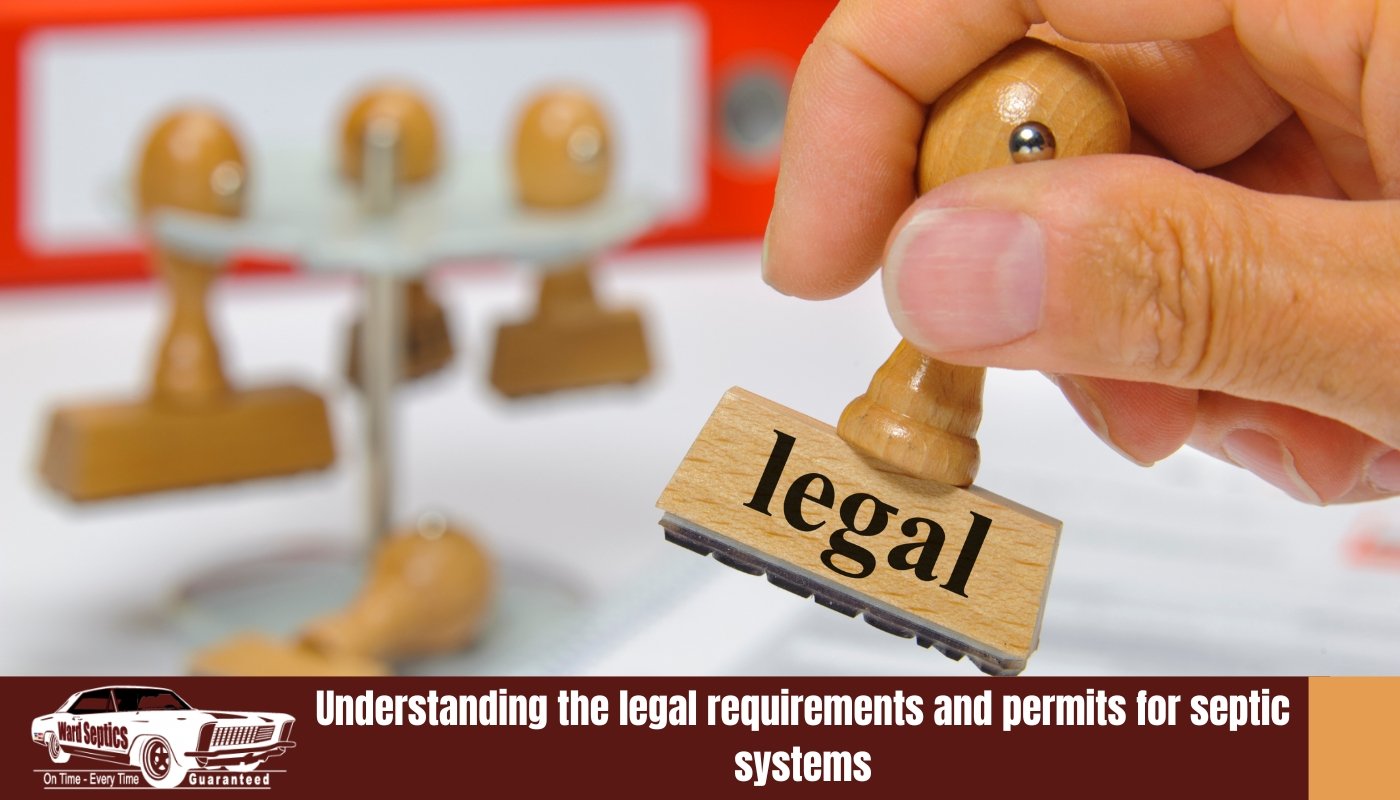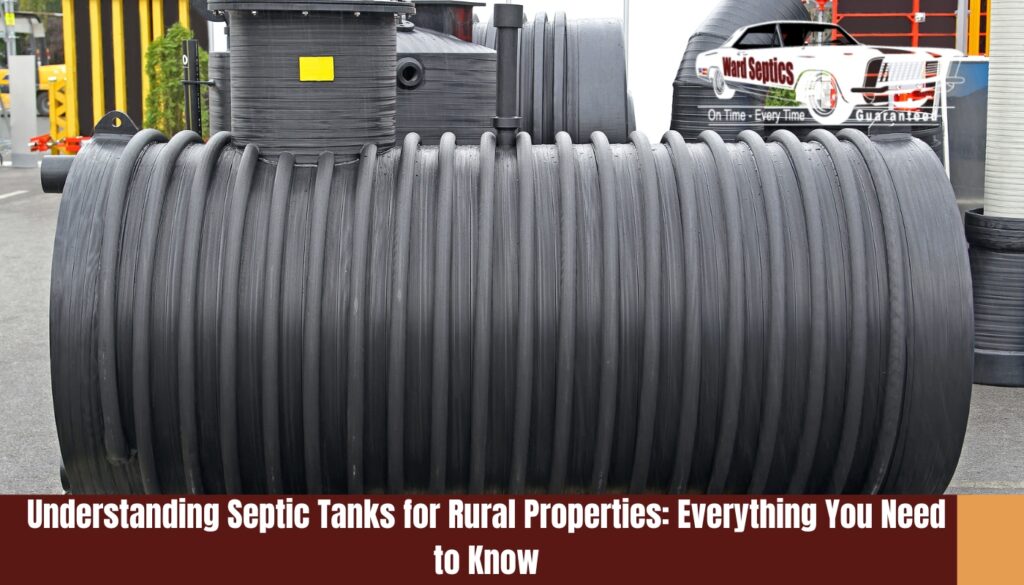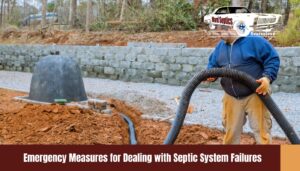Living in a rural area often means that you are not connected to the municipal sewer system, and therefore, require a septic tank to manage your household waste. Septic tanks are essential for proper sanitation and environmental protection, but many homeowners may not fully understand how they work or how to maintain them. In this blog post, we will provide you with a comprehensive guide to understanding septic tanks for rural properties. From the basics of how they work, to maintenance and installation tips, and even regulations and environmental impact, this article will cover everything you need to know about septic tanks
What are septic tanks and why are they important for rural properties?
Septic tanks are underground systems designed to treat and dispose of household wastewater from properties that are not connected to a council main sewer system. They are essential for rural properties where there is no access to centralised sewage treatment plants. Septic tanks play a critical role in managing household waste and preventing the contamination of the surrounding environment. Without a properly functioning septic tank, wastewater can leak into the soil and groundwater, leading to health risks and environmental pollution. Therefore, it is crucial for homeowners in rural areas to understand how septic tanks work and how to properly maintain them.

How septic tanks work: a basic overview of the system and its components
Septic tanks operate through a relatively simple process that involves the natural breakdown of waste materials. The system is comprised of several key components, including the septic tank itself, a distribution box, drain field, and soil.
The septic tank is a large, underground container that collects and separates household wastewater. The solid waste settles to the bottom of the tank and is broken down by naturally occurring bacteria, while the liquid waste, or effluent, flows out of the tank through a distribution box.
The distribution box then evenly distributes the effluent to a network of perforated pipes in the drain field. The pipes are buried in a bed of gravel and soil, where the effluent is further treated by the surrounding soil and bacteria. Finally, the effluent is absorbed into the ground, where it is filtered and purified by the soil before returning to the groundwater.
Tips and best practices to keep your system functioning properly
Proper maintenance of your septic system is crucial to ensure its longevity and prevent costly repairs. Here are some tips and best practices to keep your septic system functioning properly:
- Regularly pump your septic tank: Over time, the solid waste that settles at the bottom of the tank can build up and reduce the tank’s capacity, leading to backups and system failures. Pumping your tank every 3-5 years (depending on usage and size) can help prevent this.
- Conserve water: Excessive water usage can overload your septic system and reduce its efficiency. Fix any leaks or drips and consider using high-efficiency fixtures to reduce your water usage.
- Avoid flushing harmful materials: Flushing non-biodegradable materials like plastics, paper towels, and feminine hygiene products can clog your system and cause backups. Additionally, avoid pouring grease, oils, and chemicals down the drain, as they can harm the bacterial balance in your septic tank.
- Be mindful of what goes down the drain: Avoid pouring food scraps, coffee grounds, and other solids down the drain that can clog your pipes and reduce your system’s efficiency.
- Protect your drain field: Do not park or drive heavy equipment over your drain field, as it can compact the soil and reduce the system’s ability to absorb and treat wastewater.
By following these tips and best practices, you can help ensure your septic system functions properly and avoid costly repairs and replacements.

How to identify issues and when to call for professional help
Identifying issues with your septic system early can help prevent major problems and avoid costly repairs. Here are some signs that may indicate your septic system is not functioning properly:
- Slow draining or backups in sinks, showers, and toilets
- Gurgling sounds coming from your plumbing
- Foul odours in your yard or near your septic tank
- Wet or soggy areas in your drain field
- Lush green grass or vegetation around your septic tank or drain field.
- Sewage backups in your home
- High levels of nitrates or other contaminants in your well water
If you notice any of these signs, it’s important to call a professional septic service provider immediately. Septic system issues should not be ignored, as they can lead to serious health risks and environmental pollution. A professional can diagnose the problem and recommend the appropriate solution, whether it’s a simple repair or a full system replacement. Additionally, regular inspections and maintenance can help identify potential issues before they become major problems, so be sure to schedule regular septic system check-ups with a licensed professional.
What to expect and how to choose the right system for your property
Choosing the right septic system for your property is crucial to ensure proper waste management and prevent system failures. Here are some factors to consider when selecting a septic system:
- Soil type: The type and quality of your soil can impact the system’s ability to treat and absorb wastewater. A soil evaluation will determine if your soil is suitable for a standard septic system or if an alternative system is needed.
- Property size and location: The size of your property and its location can impact the type of septic system you can install. For example, if your property is small or has limited space, an alternative system may be necessary.
- Household size and water usage: The number of people living in your home and your water usage can impact the size and capacity of your septic system.
- Local regulations: Your local health department may have specific regulations and requirements for septic systems in your area, so it’s important to research and comply with these regulations.
Once you have determined the best type of septic system for your property, you can expect the installation process to take several days to a few weeks, depending on the complexity of the system. A licensed professional will typically handle the installation, which involves excavating the site, installing the tank, and connecting it to the distribution box and drain field.
Choosing the right septic system for your property can be a complex process, but by considering the factors above and consulting with a licensed professional, you can ensure proper waste management and a long-lasting system.

Understanding the legal requirements and permits for septic systems
Septic systems are subject to a range of legal requirements and regulations to ensure they are installed and operated safely and efficiently. Here are some key legal considerations and permits you may need when installing or maintaining a septic system:
- Building permits: A building permit is required for the installation of a new septic system or the repair/replacement of an existing system. The permit process typically involves an inspection by the local health department to ensure compliance with local codes and regulations.
- Health department approval: The local health department typically oversees septic system regulations and may require approval before installation or modification of a system. The health department will review your proposed system plans and conduct inspections to ensure compliance with local codes and regulations.
- Operation and maintenance permits: Some jurisdictions require an operation and maintenance permit for septic systems. This permit ensures that the system is inspected and maintained regularly to prevent failures and protect public health.
- Environmental permits: In some cases, environmental permits may be required for septic systems, especially if the system is located near a waterway or wetland. These permits ensure that the system does not harm the environment and complies with local environmental regulations.
It’s important to research and comply with local regulations and requirements when installing or maintaining a septic system. Failure to comply with these regulations can result in fines, system failures, and environmental damage. Consulting with a licenced professional can help ensure compliance and a safe, efficient septic system for your property.

Professional Tank Cleaning Services
If you need professional septic tank cleaning and maintenance services, contact Ward Septic today. Our team of licenced professionals has years of experience in maintaining and repairing septic systems of all types and sizes. We offer a range of services, including tank pumping, inspections, and repairs to keep your system functioning properly. Don’t wait until it’s too late, call us today to schedule a septic system check-up and ensure the longevity and efficiency of your system.








